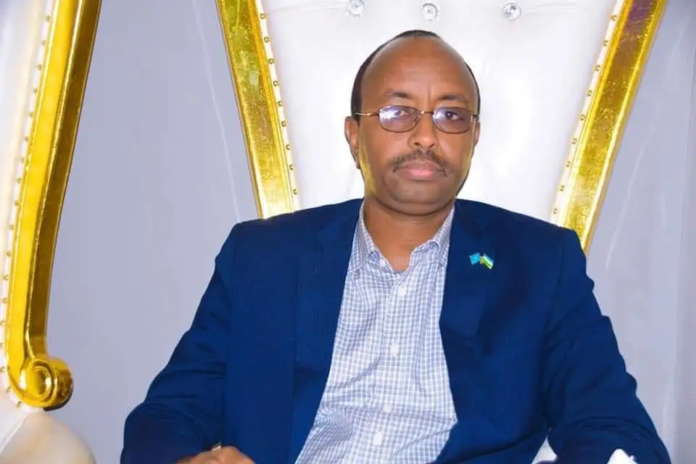NAIROBI (KAAB TV) – Puntland State, a crucial federal member state within Somalia’s dysfunctional federal government, has called for a complete suspension of the debt relief process in the country, citing deep-rooted disagreements and lack of transparency in the ongoing procedure.
Mohamed Abdirahman Dhabancad, the Minister of Finance for Puntland, has accused the federal government in Mogadishu of hijacking the process, leading Puntland to withdraw its participation.
“Puntland, the only region with a functional governance system within the federal government of Somalia, has walked out of the entire debt relief process. We are not part of it,” declared Dhabancad.
The Minister disputed a recent statement made by the Minister of Finance at the federal level, Dr. Elmi Nur, who claimed that Puntland was in agreement with Mogadishu regarding the debt relief process. “We are not satisfied with how the process has been managed. The regulations unilaterally passed by the Mogadishu-based Parliament were not endorsed by Puntland as a federal member state. Therefore, any decision reached concerning the debt relief will not be valid,” stated Dhabancad.
Minister Dhabancad also emphasized that the debt relief process in Somalia cannot proceed unless the country resolves its political differences. Puntland also cited severe corruption within President Hassan Sheikh Mohamud’s cabinet as another reason for distancing themselves from the authorities in Mogadishu.
Although Somalia is already in debt distress, it cannot access full debt relief from the International Monetary Fund (IMF) until it demonstrates commitment to structural reforms that ensure effective utilization of public resources for the benefit of all Somali people and efforts to promote stronger economic growth leading to more job opportunities.
On March 25, 2020, Somalia achieved the HIPC Decision Point, allowing partial settlement of its debt, most of which had accumulated before the civil war in 1991 and remained unpaid for three decades.
In October last year, the IMF announced a staff-level agreement with Somalia, enabling the release of approximately $10 million to the East African nation, subject to approval by the IMF board.
However, numerous critical challenges still persist. The country grapples with rampant corruption in the public sector, lack of transparency, and a deficient governance system, hindering efforts to combat these issues. Furthermore, growing divisions between federal authorities in Mogadishu and federal member states, along with clan-based clashes erupting in various regions, pose risks of plunging the country back into chaos.
Economic and financial experts express concerns about these challenges potentially reversing the hard-earned gains made by the poverty-stricken and heavily indebted nation.
Somalia’s external debt is estimated to exceed $5 billion, with the United States being the largest creditor, owed $1 billion. Countries eligible for the Heavily Indebted Poor Countries (HIPC) Initiative by the IMF and World Bank must commit to economic and financial reforms, poverty reduction, and political stability.
Transparency International, a non-profit organization, ranks Somalia as one of the most corrupt countries globally.
In its 2022 Corruptions Perceptions Index, Transparency International placed Somalia at the bottom, highlighting President Hassan Sheikh Mohamud’s dissolution of two vital anti-corruption bodies through a decree.


